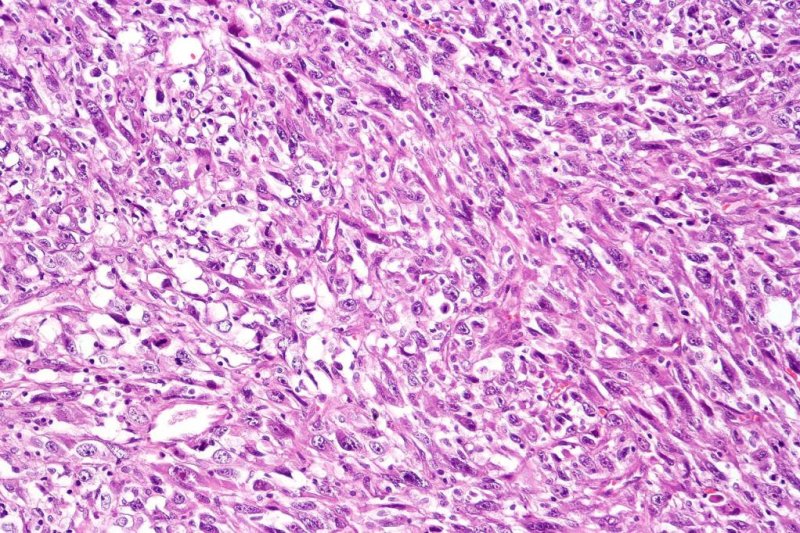New research showed the oncolytic virus coxsackievirus, or CVA21 wiped out all cancer in a patient with non-muscle invasive bladder cancer. Photo by
CoRus13/Wikimedia
July 8 (UPI) -- A strain of the common cold could help fight off bladder cancer, new research shows.
New research showed the oncolytic virus coxsackievirus, or CVA21, wiped out all cancer in one of 15 patients with non-muscle invasive bladder cancer, according to a study published this month in the journal Clinical Cancer Research.
"Non-muscle invasive bladder cancer is a highly prevalent illness that requires an intrusive and often lengthy treatment plan," Hardev Pandha, a researcher at the University of Surrey and study principal investigator, said in a news release. "Current treatment is ineffective and toxic in a proportion of patients and there is an urgent need for new therapies."
Traditionally, non-muscle invasive bladder cancer is treated with transurethral resection, which removes lesions from the bladder. But up to 70 percent of patients who receive this therapy experience tumor recurrence, and as many as 20 percent tumor progression.
A live bacterium therapy called Bacille Calmette-Guerin also treats non-muscle invasive bladder cancer, but causes side effects in one-third of patients -- and doesn't work at all for another one-third of patients.
"Coxsackievirus could help revolutionize treatment for this type of cancer. Reduction of tumor burden and increased cancer cell death was observed in all patients and removed all trace of the disease in one patient following just one week of treatment, showing its potential effectiveness," Pandha said. "Notably, no significant side effects were observed in any patient."
For the study, the researchers examined 15 patients with non-muscle invasive bladder cancer, which normally lines the organ's inner surface.
A week prior to having surgeries to remove their tumors, the patients took CVA21 infusions through a catheter into their bladder. After the surgeries, the researchers discovered the virus killed all cancerous cells and continued to replicate itself to combat any other signs of cancer.
According to the National Institutes of Health, non-muscle invasive bladder cancer makes up 75 percent of all bladder cancers.
"Traditionally viruses have been associated with illness however in the right situation they can improve our overall health and wellbeing by destroying cancerous cells," said Nicola Annels, a research fellow at the University of Surrey and study author. "Oncolytic viruses such as the coxsackievirus could transform the way we treat cancer and could signal a move away from more established treatments such as chemotherapy."















